Search
Remove Ads
Advertisement
Search Results
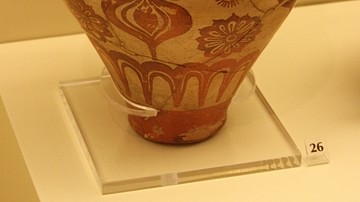
Image
Mycenaean Jug
Mycenaean bridge-spouted jug displaying a Minoan influence (1500-1450 BCE). Found in the Kalkani tomb, Mycenae. Archaeological Museum Mycenae.
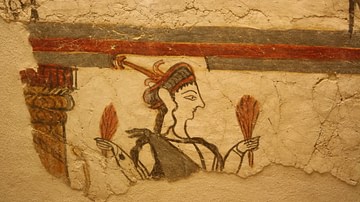
Image
Mycenaean Fresco
Mycenaean fresco from Mycenae (1250-1180 BCE). Archeaological Museum Mycenae.

Video
The Minoans: A Civilization of Bronze Age Crete
The Minoans were a civilization who flourished during the Bronze Age in the Aegean, and originated from the island of Crete. The #Minoans were a strong maritime entity and traded throughout the Aegean, primarily with the early Mycenaeans...

Video
Knossos Crete - The palace of Knossos - ancient
Knossos nearby Heraklion Crete. Shot by HD-video. The great ancient Minoan palace was built gradually between 1700 and 1400 BC, with periodic rebuildings after destruction. Go and vist Crete your self. Video-editing, background music etc...
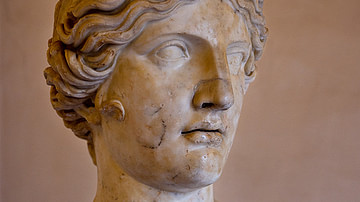
Definition
Hera
Hera (Roman name: Juno) is the wife of Zeus and queen of the ancient Greek gods. Hera represented the ideal woman, was the goddess of marriage and the family, and protectress of women in childbirth. Hera was always faithful to Zeus but she...

Definition
Hercules
Hercules (Herakles) was a hero of Greek mythology famous for his great strength and endurance. Celebrated as an extraordinary mortal, his success in seemingly impossible labours won him an immortal place amongst the gods. As the greatest...
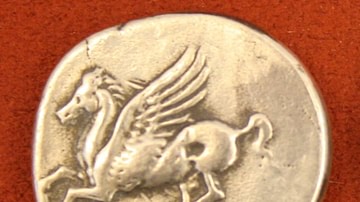
Definition
Pegasus - The Winged Horse of Greek Mythology
Pegasus (or Pegasos) is a winged-horse from Greek mythology which was fathered by Poseidon and was born from the severed neck of the gorgon Medusa, slain by Perseus. At the same time and in the same way, Chryasor was also born. Poseidon gave...
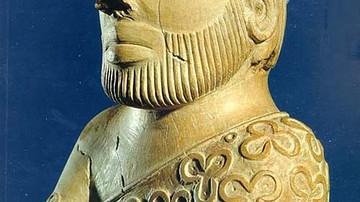
Image Gallery
A Gallery of the Indus Valley Civilization
The Indus Valley Civilization (c. 7000-c. 600 BCE) is among the oldest in the world but, as it was only “discovered” in 1829 – after ancient Egyptian and Mesopotamian sites had already been excavated – many of the “firsts” of civilization...
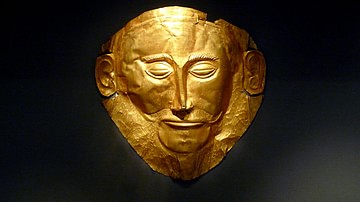
Image
Death Mask of Agamemnon
The so-called death mask of Agamemnon - the king of Mycenae in Homer's Iliad. Gold funeral mask from Grave Circle A, Mycenae (mid-16th century BCE). The mask in fact predates Agamemnon by 400 years but nevertheless remains solid evidence...
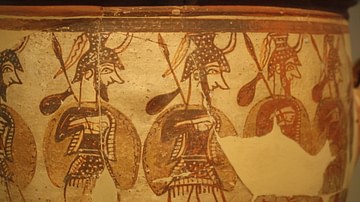
Image
Mycenaean Warriors
Mycenaean warriors depicted on a krater from Mycenae known as the 'House of the Warrior Vase', 12th century BCE. (National Archaeological Museum, Athens)